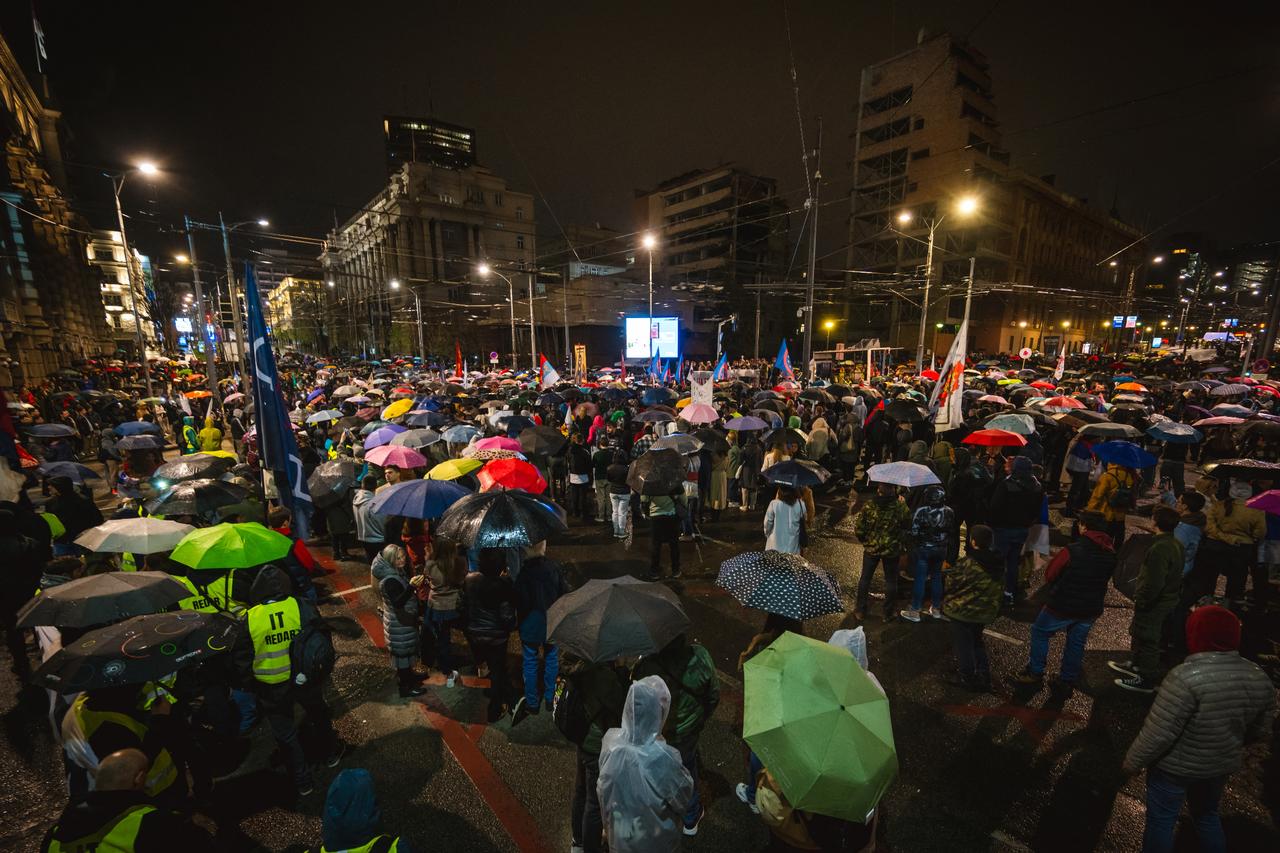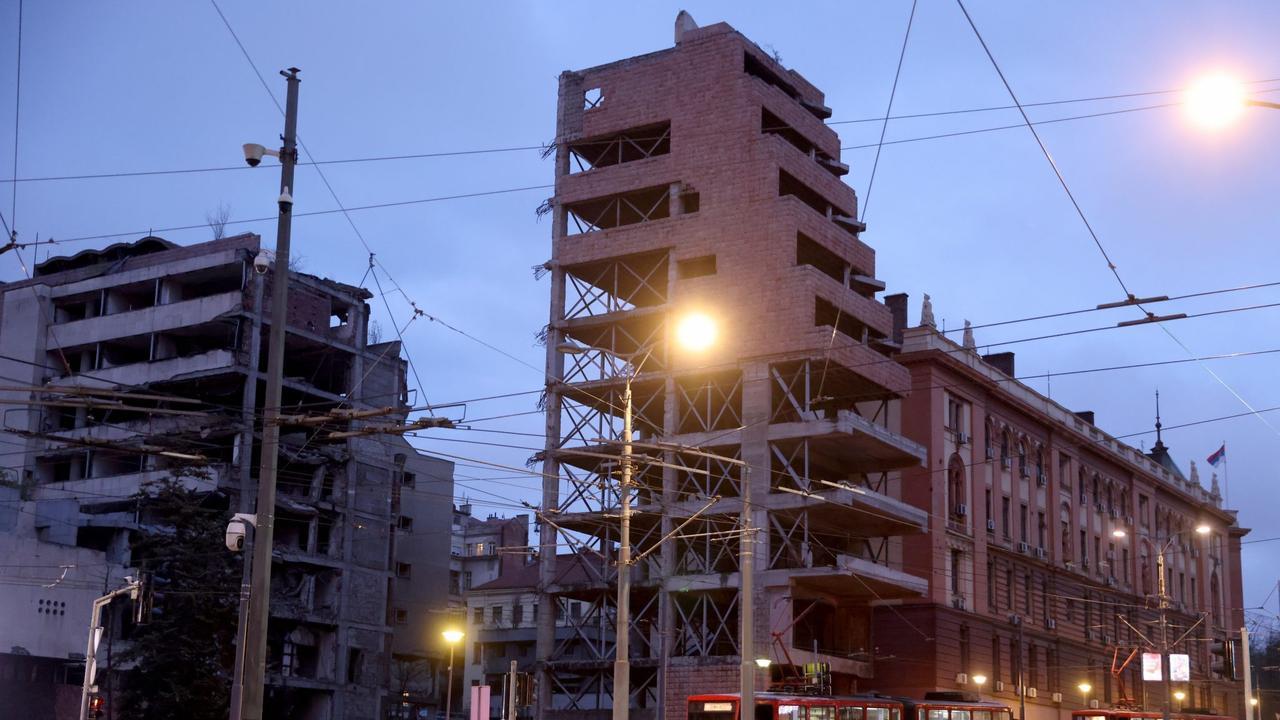
Serbia’s parliament voted Friday to fast-track the demolition of the bombed-out former Yugoslav Army headquarters in central Belgrade, clearing the way for a controversial redevelopment project backed by Jared Kushner, the son-in-law of United States President Donald Trump.
The mid-20th-century modernist complex was partially destroyed in NATO’s 1999 bombing campaign, which aimed to end the Kosovo war.
The building has remained in ruins ever since and has become a symbol of both national suffering and Yugoslav-era architecture. Many Serbs view it as a memorial to those killed in the airstrikes.
The redevelopment plan, led by Kushner’s Miami-based investment firm Affinity Partners, has sharply divided public opinion. Affinity signed a 99-year lease agreement with the Serbian government last year, shortly after the building’s “cultural asset” status was revoked.

U.S.-based Affinity Global Development aims to build a luxury hotel, apartments, shops, and offices on the site. The project also involves UAE-based Eagle Hills, which was previously linked to the controversial Belgrade Waterfront development—a riverfront revitalization effort that drew widespread criticism in 2016.
The project stalled in May after allegations surfaced that a public official had forged documents used to lift the site’s cultural protection. An investigation is still underway. But on Friday, lawmakers passed a special law declaring the redevelopment “urgent,” obliging state institutions to issue permits and approvals without delay.
The bill passed with 130 votes in favor and 40 against.
President Aleksandar Vucic, who has personally hosted Kushner multiple times in Belgrade, has expressed his full support for the redevelopment.
“The General Staff building has been bombed and left in ruins for 26 years,” said Miljenko Jovanov, a lawmaker from Vucic’s ruling Serbian Progressive Party, during a parliamentary debate. “I support good relations with the U.S., which many try to hinder.”
But opposition Green-Left Front MP Radomir Lazovic accused the government of attempting to "flatten" a national memorial under the pretense of a hotel project serving the “national interest.”
Outside parliament, architects and heritage experts rallied against the law. “In front of us stands a unique architectural and urban masterpiece,” said Miljan Salata, an architect and member of the Association of Architects of Serbia. “This building is safe, can be reconstructed, and should remain in public use as a memorial to the victims of NATO’s bombing.”
Estela Radonjic Zivkov, a heritage expert at the Institute for the Protection of Cultural Monuments, warned that the law sets “a dangerous precedent” by allowing protected sites to be stripped of status, sold off and demolished.
Some opposition lawmakers also argued the bill was unconstitutional. Despite those objections, the ruling coalition passed the law without amendments and allowed it to take effect immediately—enabling work to begin shortly.

The vote came amid growing political unrest in Serbia, where President Vucic has faced months of protests triggered by a tragic train station roof collapse in Novi Sad in November 2024 that killed 16 people.
Public anger over the accident evolved into a broader anti-corruption movement. Just last week, tens of thousands gathered to mark the first anniversary of the disaster.
On Friday, a small crowd of demonstrators gathered outside parliament to protest the redevelopment and show support for a grieving mother who lost her son in the Novi Sad accident.
She has been on a hunger strike since Sunday, demanding accountability for what many blame on government negligence and corruption.